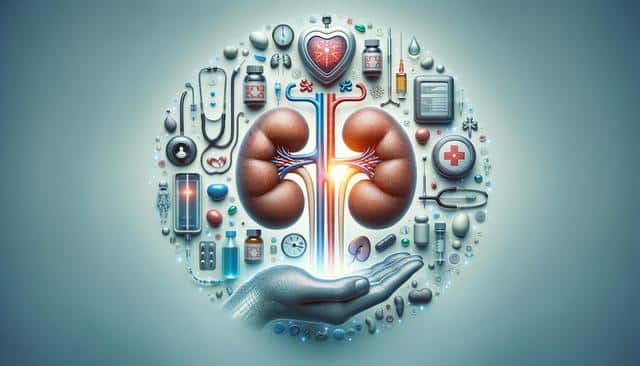Understanding Kidney Disease and Its Impact
Kidney disease, particularly Chronic Kidney Disease Stage 3, presents a range of challenges that require careful management. At this stage, the kidneys are moderately damaged, which means they are less efficient at filtering waste and fluids from the blood. This inefficiency can lead to a buildup of waste in the body, causing various health issues. Treatment for kidney disease often involves lifestyle changes and medical interventions aimed at preserving kidney function and preventing further damage. One of the key areas to focus on is diet, which plays a crucial role in a comprehensive kidney treatment plan. By understanding the impact of food and nutrition on kidney health, individuals can make informed choices that promote natural healing and improve overall well-being.
Dietary Adjustments for Kidney Health
Managing diet is a cornerstone of kidney disease treatment. Patients must be aware of certain nutrients that can either alleviate or exacerbate their condition. Important dietary adjustments include reducing sodium intake to help manage blood pressure and decrease fluid retention. It is also advised to limit protein consumption since excessive protein can strain the kidneys. Opt for high-quality protein sources in controlled amounts to support body functions without overburdening the kidneys. Another key consideration is the intake of phosphorus and potassium, as kidneys with diminished function struggle to balance these minerals in the body. Patients should focus on consuming foods low in these minerals to aid in their kidney treatment efforts.
Essential Foods to Include
While certain restrictions are necessary, there are many foods that can support kidney health and are highly recommended in a kidney disease treatment plan. Some of these foods include:
- Cauliflower: A versatile vegetable low in potassium and phosphorus, making it kidney-friendly.
- Blueberries: Renowned for their antioxidant properties, they are low in sodium, phosphorus, and potassium.
- Red bell peppers: High in vitamins and low in potassium, they add flavor and nutrients without straining the kidneys.
- Garlic: A flavorful addition that is low in sodium and provides anti-inflammatory benefits.
These foods, when included in a well-balanced diet, can promote better kidney function and contribute positively to the overall treatment for kidney disease.
Foods to Avoid
Certain foods can be detrimental to those with Chronic Kidney Disease Stage 3 and should be avoided to prevent further kidney damage. These include:
- Processed meats: High in sodium and preservatives, they can increase blood pressure and fluid overload.
- Canned foods: Often contain high levels of sodium as a preservative, which can be damaging to kidneys.
- Whole grain bread: Although healthy for others, whole grain bread is high in phosphorus and potassium.
- Oranges and orange juice: These are high in potassium, which can be challenging for the kidneys to manage.
By avoiding these dietary ‘minefields,’ patients can better manage their condition and support kidney health.
Collaborative Care Approach
Effective management of kidney disease requires a collaborative approach involving healthcare providers, nutritionists, and the patients themselves. Regular check-ups and monitoring are essential to assess kidney function and adjust dietary plans as needed. A personalized approach to food and nutrition, guided by healthcare professionals, ensures that dietary restrictions and recommendations are tailored to individual needs. Patients should actively participate in their treatment for kidney disease by staying informed and engaged in their care plan. This proactive involvement is crucial in slowing disease progression and enhancing the quality of life.
Conclusion
For those managing Chronic Kidney Disease Stage 3, understanding and adhering to dietary guidelines is a vital component of their kidney disease treatment. By focusing on foods that support kidney health and avoiding those that can cause harm, patients can actively contribute to their own natural healing process. With the assistance of healthcare professionals, a well-structured diet can become a powerful tool in maintaining kidney function and improving overall health. By adopting these dietary strategies, individuals with renal failure can navigate their condition more effectively, ensuring a better quality of life.
